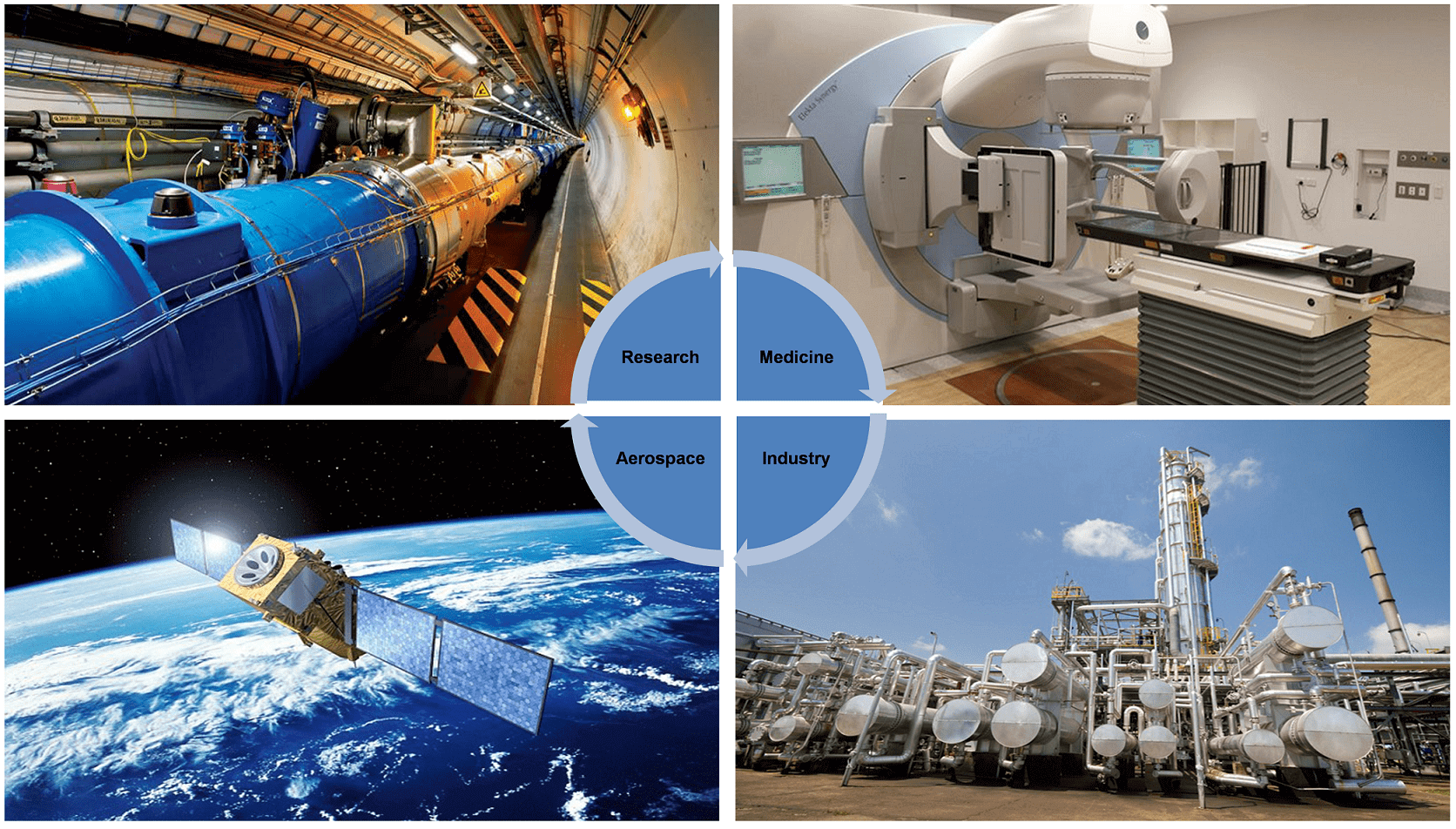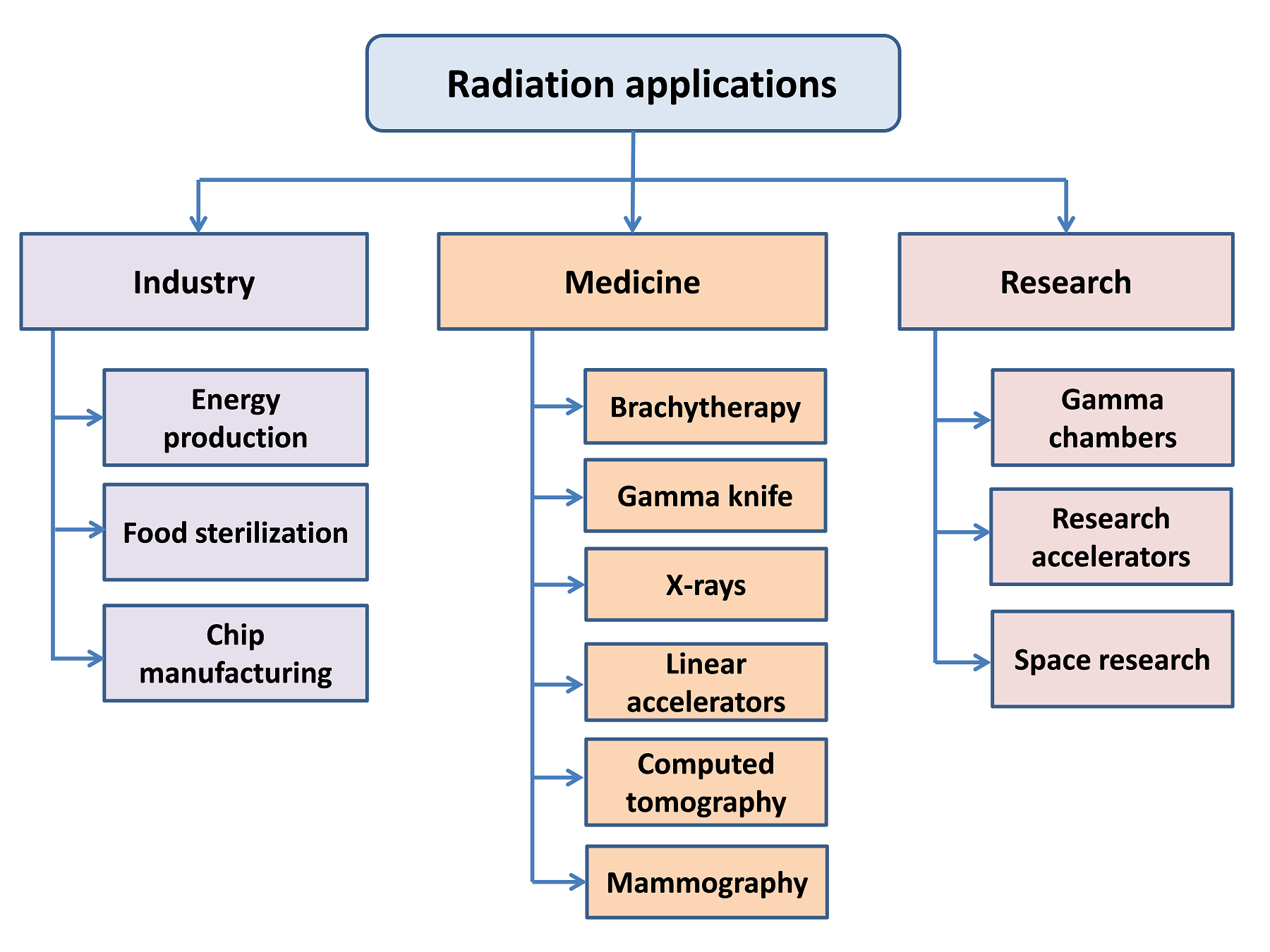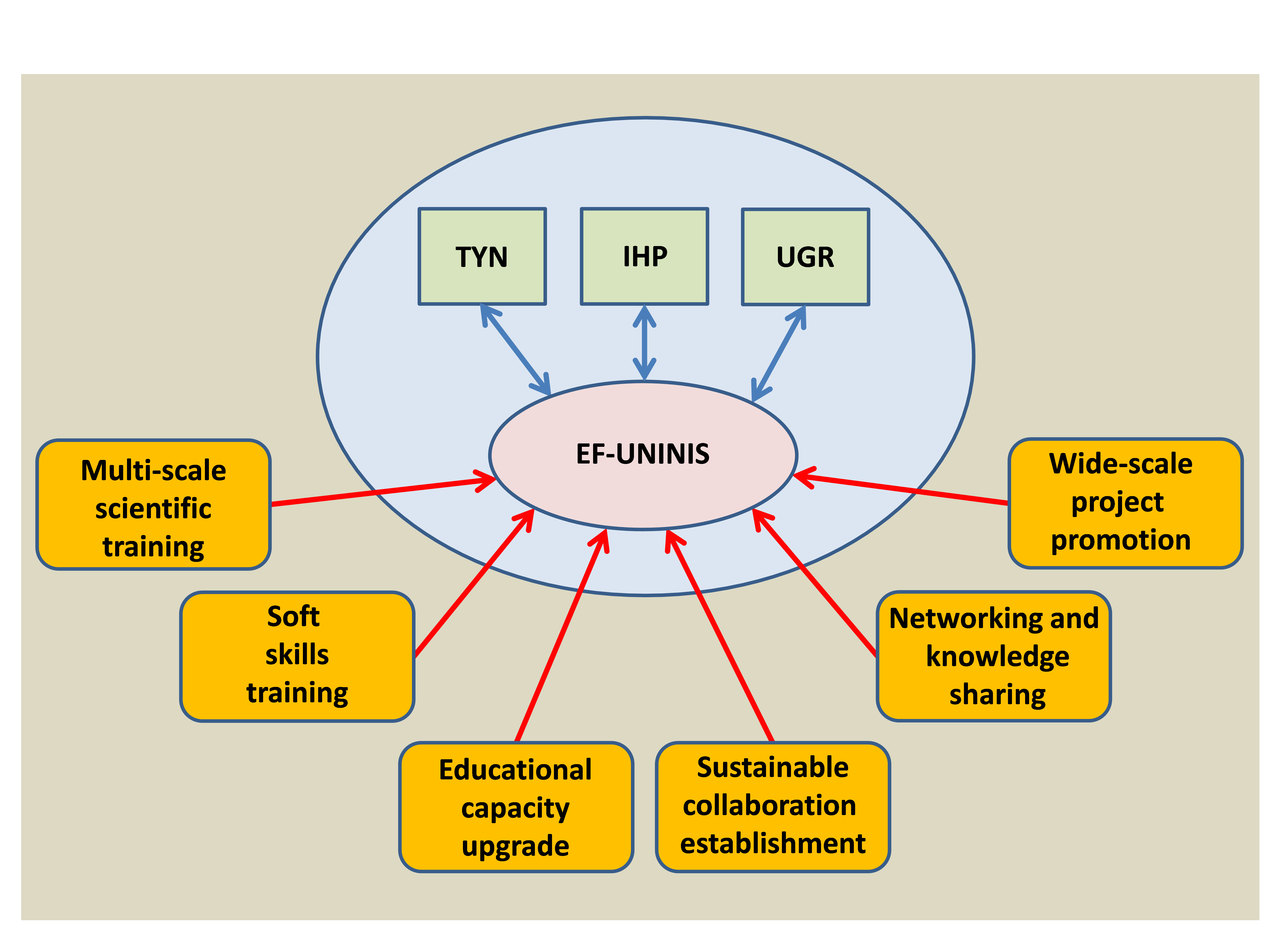Type of action: Coordination and Support
Topic: H2020-WIDESPREAD-2018-2020
Call: WIDESPREAD-3-2018-TWINNING
Enhancement of Scientific Excellence and Innovation Potential in Electronic Instrumentation for Ionizing Radiation Environments
ELICSIR

| Participant number | Participant organization name | Participant organization short name | Country |
|---|---|---|---|
| 1 (Coordinator) | Faculty of Electronic Engineering, University of Niš | EF-UNINIS | Serbia |
| 2 | Tyndall National Institute, University College Cork | TYN | Ireland |
| 3 | IHP GmbH Institute for High Performance Microelectronics | IHP | Germany |
| 4 | University of Granada | UGR | Spain |
Ionizing radiation can be encountered as natural (background) radiation originating from cosmic rays or naturally occurring radionuclides, or as radiation emitted by man-made sources. Ionizing radiation has found numerous applications in industry, medicine and research.

Monitoring of ionizing radiation exposure is accomplished with radiation dosimeters, composed of radiation sensors (detectors) and signal processing electronics. Semiconductor devices (e.g. MOS transistors and various types of diodes) are increasingly used as sensor elements, as active (electronic) dosimeters are becoming more popular and are replacing their traditional passive counterparts. Operating principle of electronic dosimeters relies on measurement of the change of electrical properties of the sensing elements due to radiation. This field of research has a significant and growing commercial potential, as shown in table:
| Product | Value 2015 [USD million] | Value 2022 [USD million] |
|---|---|---|
| Personal dosimeters | 915.8 | 1,347.8 |
| Area process monitors | 368.4 | 520.2 |
| Environmental radiation monitors | 198.1 | 274.0 |
| Surface contamination monitors | 158.6 | 213.5 |
| Radioactive material monitors | 124.6 | 138.7 |
| Total value | 1,765.5 | 2,494.1 |
With the technological downscaling, the radiation-induced effects are becoming a major threat to the reliable operation of electronic devices, circuits and systems not only in radiation environment but also for mainstream terrestrial applications. Although it has traditionally been a major issue only for space electronics, it is nowadays well established that the ionizing radiation may severely affect the electronic equipment at terrestrial level (e.g. electronics in automotive applications or medical devices, such as pacemaker, may be affected by atmospheric particle radiation). For that reason, the design of electronic instrumentation for radiation environments also for safety critical terrestrial applications requires efficient radiation hardening measures.
Electronic instrumentation for ionizing radiation environments (including also electronics used as an integral part of dosimeters, i.e. read-out circuitry) is generally composed of sensing, data processing, communication, storage and visualization modules, and can be implemented as standalone or distributed. As the functionality and specifications of a particular radiation monitoring system depend on the specific application, and due to different effects caused by different types of radiation, the design of electronic instrumentation for ionizing radiation environments requires a synergy of multiple research disciplines such as Physics, Electronics, Microelectronics, and Software Engineering.
The investigation of ionizing radiation effects in semiconductor devices is the main research activity of the radiation research group from the Faculty of Electronic Engineering, University of Nis, Serbia. The Faculty of Electronic Engineering has built its expertise in relation to ionizing radiation effects through the national projects and a single FP7 project. However, mainly due to limited funding opportunities, it has been difficult to keep pace with the state-of-the art research in this area. In order to enhance the scientific expertise and networking capacity of the Faculty of Electronic Engineering in the characterization of ionizing radiation effects, we propose a three-year project to be run by a consortium involving the Faculty of Electronic Engineering (EF-UNINIS) from Serbia, and three European institutions with broad experience in radiation effects research - Tyndall National Institute (TYN) from Ireland, IHP GmbH (IHP) from Germany, and University of Granada (UGR) from Spain.
The EU partners involved in ELICSIR consortium will provide complementary expertise covering multiple research topics related to radiation effects relevant for electronics instrumentation, from modelling and simulation of radiation-matter interaction to design of customized systems for application in different radiation environments. In addition, the EU partners possess complementary experience in relation to exploitation of radiation research results in a wide range of applications in medicine, industry, and space research. This experience and know-how will be transferred to the EF-UNINIS researchers through a coherent and comprehensive set of project actions.
In the proposed ELICSIR project, we intend to employ a unique multi-scale approach based on the combination of the expertise related to radiation dosimetry and the expertise related to rad-hard design. We envisage that such approach will contribute to the significant and sustainable enhancement of the scientific excellence and innovation capacity of EF-UNINIS. While the project is certainly focused on EF-UNINIS, the three supporting partners will also benefit from increased research interactions in the project and enhanced visibility through dissemination actions.
Detailed Description of Project Activities
To fulfil the ELICSIR project objectives elaborated in the previous sections, we propose the following activities:
- Multi-scale complementary scientific training on radiation effects
- Complementary transferable skills training
- Networking and knowledge transfer through organization of scientific events
- Promotion of project results through dissemination, exploitation, and communication activities
- Raising of the awareness of general public and relevant stakeholder groups through outreach activities
- Enhancement of educational capacity of EF-UNINIS in relation to ionizing radiation effects research
- Creating conditions for sustainable impacts of the project.

Figure: Project methodology
The ELICSIR project is planned for the duration of 3 years. In order to accomplish the proposed objectives, the work plans will be organized into five work packages (WPs), as follows
WP1: Staff and students training
WP2: Establishment of sustainable collaboratio
WP3: Boosting of networking capacity
WP4: Dissemination, outreach and exploitation
WP5: Project management


